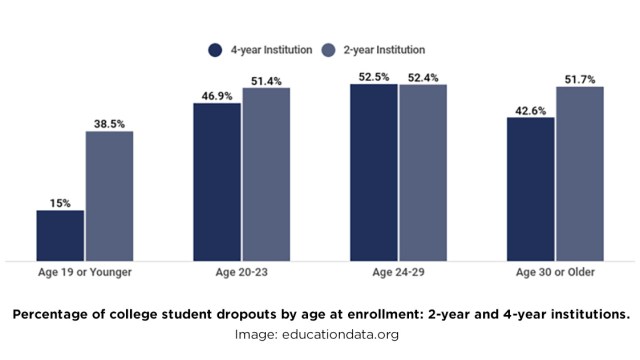Yoga may ease symptoms of depression, according to new research

Photo by Rawpixel.com on Shutterstock
- Depressive disorders are the leading cause of disability worldwide, affecting over 340 million people.
- According to a new study in the British Journal of Sports Medicine, yoga sessions may be able to ease depressive symptoms in people with mental health conditions such as depression, anxiety, and bipolar disorder.
- Mindfulness, meditation, and breathing control techniques are all things that have been proven effective in reducing depressive symptoms. Traditional yoga practices typically include a combination of these things and therefore may actually have more of a positive impact.

Depressive disorders are the leading cause of disability worldwide. Photo by fizkes on Shutterstock
Globally, mental disorders such as the ones highlighted throughout this article are responsible for up to 32% of disability-adjusted life years (which is described as a year of ‘healthy’ life lost). Depressive disorders are the leading cause of disability worldwide, affecting over 340 million people.
With COVID-19 lockdowns preventing people from accessing their regular workout routines, many are beginning to look for alternatives – and this is where yoga can help, according to new research. While typical treatments are still effective for those who are able to experience them, there may be another way to combat symptoms of depression.
According to a new study in the British Journal of Sports Medicine, yoga sessions may be able to ease depressive symptoms in people with mental health conditions such as depression, anxiety, and bipolar disorder.
To assess whether physically engaging yoga practices were able to alleviate depressive symptoms in people with a diagnosed mental disorder, 19 studies were included in a large-scale systematic review, and 13 additional studies were included in a meta-analysis review for this experiment.
Jacinta Brinsley, a doctoral candidate at the University of South Australia (and lead on the study) explains: “Exercise has always been a great strategy for people struggling with these feelings, as it boosts both mood and health.”

Study shows the more yoga you do, the less depressive symptoms you may feel.Photo by Rawpixel.com on Shutterstock
Within the 1712 individuals across these 32 studies, disorders of depression, post-traumatic stress, schizophrenia, anxiety, alcohol dependence, and bipolar were present.
Participants did 1-2 yoga sessions per week which varied between 20 to 90 minutes long. According to Brinsley, “This is any kind of yoga where ‘asana’ (the postures and movements) are at the main focus.” Brinsley also explained that most yoga classes found online or in gyms or studios in Western society would fit these criteria.
These yoga sessions were completed weekly for about 2.5 months across all studies reviewed in this project. The results found through Brinsley’s team analysis were that yoga moderately eased depressive symptoms compared with other self-help treatments (or lack of treatment) across the mental health spectrum.
The analysis proves that some conditions seemed to benefit more than others, with the highest success being among individuals who were diagnosed with depressive disorders. Yoga was less effective for those with schizophrenia and those struggling with alcohol use disorders. There was no positive impact listed for those who struggled with depression that stemmed from PTSD.
According to the analysis, the more yoga sessions a person did each week, the less they struggled with depressive symptoms and the better they felt.
Different mechanisms work for us to improve our physical and mental health as we exercise.
Exercise has been widely known for its physical and mental health benefits, with increasing blood circulation to the brain (especially to areas like the amygdala and hippocampus), which both play roles in controlling our motivation, moods, and responses.
One of the mechanisms that work for us, bettering our physical and mental health when we exercise is the release of endorphins. Another important mechanism that helps is the body’s central stress response system (the hypothalamic-pituitary-adrenal axis), along with the ability for yoga (or other kinds of exercise) to improve sleep quality.
Mindfulness, meditation, and breathing control techniques are all things that have been proven effective in reducing depressive symptoms. Traditional yoga practices typically include a combination of these things and therefore may actually have more of a positive impact beyond mindfulness, breathing exercises, or exercise used individually.
Connecting the body to the mind through yoga practices.
One of the most helpful things when dealing with mental health conditions is awareness and proactivity. Understanding the problem and working to find a solution. Yoga practices often teach that the body, mind, and spirit are all connected. When you do work in one area, it impacts your whole system.
Laurie Hyland Robertson, who co-authored the book “Understanding Yoga Therapy“, explains: “We can expect that leg exercises, especially when you approach it in a mindful and purposeful way, can not only affect your quadriceps, but also your emotional state, your body’s physiology, and even your mental outlook.”
Yoga can be treated as any treatment plan – individualized for each patient.
Robertson also explains that yoga is an extremely unique treatment plan that offers something for everyone, as “the results of this analysis underscore the importance of working with a professional who can tailor yoga practices to the individual, adapting the care plan as needed.”





